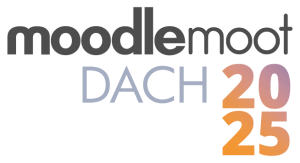MoodleMoot DACH 2025
Mastering the Art of Academic Writing
Developing strong writing skills requires more than just completing assignments—it's about cultivating critical thinking and effective communication. Students who approach academic writing as an opportunity for intellectual growth rather than a chore produce work that demonstrates deeper understanding and analytical abilities. These skills prove valuable not just in academics but throughout one's professional career.
Part-time jobs for students often make time management challenging, but effective writing strategies can help balance these responsibilities. While some may consider shortcuts like the option to buy a Master thesis online, authentic engagement with the writing process leads to more meaningful learning and lasting skills. The ability to organize thoughts and construct clear arguments becomes particularly important when juggling work and studies.
Effective writing begins with careful analysis of assignment requirements. Before starting any project, identify key objectives, required formats, and evaluation criteria. Students working part-time should create a realistic schedule that allocates specific times for research, drafting, and revision. Breaking the process into manageable steps prevents last-minute stress and improves quality.
Research methodology forms the foundation of quality academic work. Seek authoritative sources and maintain organized notes with proper citations. Many university libraries offer evening or weekend research help that can accommodate work schedules. Developing efficient research skills saves time while producing better-supported arguments.
Structural planning transforms information into compelling arguments. Create detailed outlines before drafting to ensure logical flow and coherence. Each paragraph should advance your central thesis while maintaining clear connections to surrounding ideas. This approach discribed on writepaperfor.me is especially helpful for time-constrained students as it maximizes writing efficiency.
The writing process benefits from distinct drafting and revision phases. Initial writing should focus on content development without perfectionism. Subsequent revisions should address organization, clarity, and proper citation. Reading work aloud helps identify areas needing improvement, a technique particularly useful for students with limited editing time.
Proper documentation demonstrates academic integrity while situating your work within scholarly conversations. Learn your discipline's citation style thoroughly—this attention to detail becomes increasingly important in advanced academic work. Many universities offer writing support services with flexible hours for working students.
Seeking feedback provides valuable perspective. Consult professors during office hours or visit writing centers for guidance. When receiving criticism, focus on understanding rather than defending—this approach yields the most useful improvements.
The skills developed through academic writing—analysis, organization, and clear communication—benefit students both academically and professionally. Those balancing part-time jobs with studies find these competencies help them manage multiple responsibilities more effectively. While the temptation to buy a Master thesis online might arise during busy periods, the long-term value of developing authentic writing skills far outweighs any short-term convenience.
Ultimately, strong writing stems from practice and persistence. Students who engage regularly with the writing process, utilize available resources, and maintain academic integrity position themselves for success in all their endeavors. The ability to express complex ideas clearly remains one of the most valuable skills any student can cultivate.
